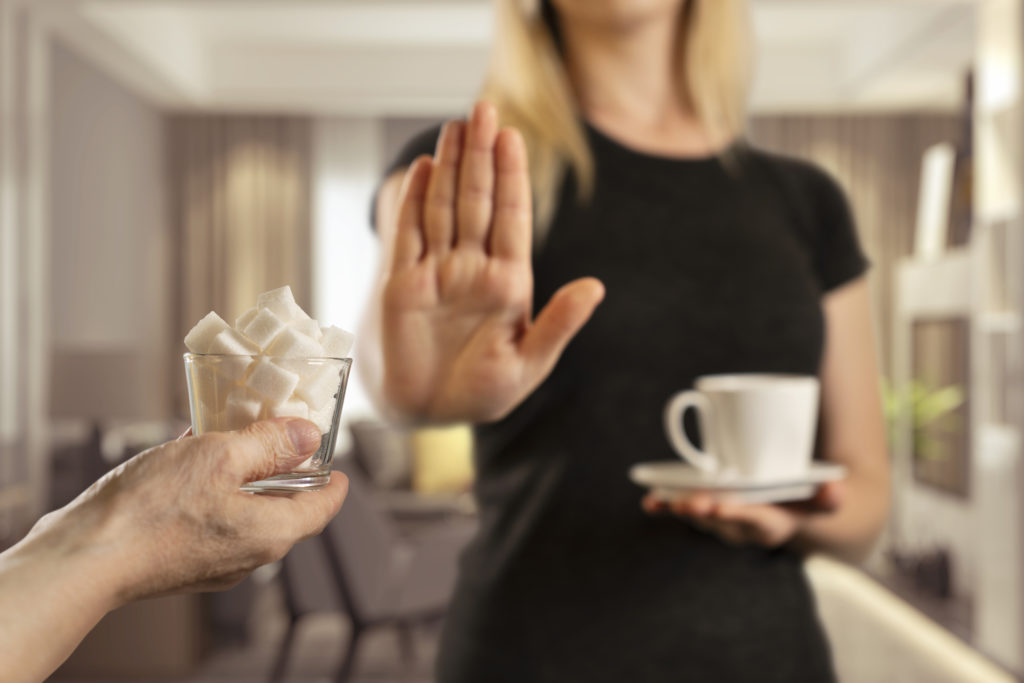Why Do Recovering Addicts Crave Sugar?
Although drug addiction and sugar consumption may seem unrelated, the two are more connected than most people realized. Addiction is a disease that results in chemical changes to the brain. Drugs activate the brain’s reward system and often increases dopamine, the hormone associated with the reinforcement of pleasurable activities. The result is an unnatural high and euphoric rush that over time, the brain becomes dependent on and begins to crave. Drugs may also help satisfy a person’s psychological needs as they learn to turn to these substances to feel good, even if it is only temporary. Because people in recovery are no longer able to get high off drugs and may still be struggling to find ways to meet their psychological needs, they will look for alternatives to get this same euphoric feeling. While not as strong, sugar’s effects on the brain are similar to those of substances of use. It too activates the brain’s reward system and increases dopamine levels. Over time, this “sugar rush” can causes cravings for more and in some cases, even be addictive.1 Eventually, sugar may also lead to chemical changes in the brain similar to those from drug addiction if taken in excess.1
Why You Should Avoid Sugar in Recovery
While little kids are warned not to eat too much sugar because of the risk of getting cavities, eating sugar in addiction recovery may have more serious consequences. People should avoid sugar in early recovery for several reasons including:
- the risk of developing a sugar addiction
- the impact of sugar on physical health conditions connected to substance use
- the mental health effects of sugar
- the impact of sugar on sleep
One of the biggest reasons recovering addicts and sugar don’t mix is because of the risk of trading addictions. In early recovery, people are struggling to find the same chemical high and fill the same psychological needs that drugs provided for them. Because sugar activates the brain’s reward system and may be a way to satisfy these emotional needs, people in recovery may start to overindulge. The result may be that the recovering drug addict becomes addicted to sugar now instead of drugs. Along with the danger of developing a sugar addiction in recovery, sugar, in general, can be bad for your physical and mental health. High sugar intake is associated with a higher risk of dental health problems, heart disease, obesity, liver disease, and some cancers.2,3 For someone trying to recover from years of damage to their health from substance use, sugar intake may be even more detrimental. Meth use can lead to meth mouth, cocaine use can increase the risk of cardiovascular problems, and alcohol can cause serious damage to the liver. If someone in recovery is already dealing with these physical ailments from their substance use, sugar could hinder the healing process or even make these matters worse. In high doses, sugar may also negatively impact mental health. One study found that high sugar intake is linked with common mental health disorders including specifically depression. The study also showed that high sugar consumption predated depression, suggesting that high sugar consumption was part of the cause instead of the result.4 Someone in early recovery may already be experiencing depression, anxiety, and other mental health disorder symptoms because of withdrawal, so sugar could make these symptoms worse. Another reason recovering drug addicts and sugar are not a good combination is because of sugar’s potential impact on sleep. A diet high in sugar may lead to poorer sleep quality and more interrupted sleep.5 For someone going through drug detox and already struggling to get a good night’s sleep, a sugary diet could add to the problems.
Tips to Avoid Sugar in Addiction Recovery
Especially if you have a sweet tooth, it may be hard to cut back on sugar when you are battling dopamine cravings during withdrawal. While challenging, these tips to reduce your sugar intake in addiction recovery could set you up for healthy and long-lasting sobriety.
- Read food labels
- Avoid processed foods
- Don’t buy sugary foods
- Avoid sugary drinks like soda
- Watch your condiment consumption
- Replace sugary desserts with healthier ones
- Find healthier ways to fill the void left behind by drug addiction
At our drug rehab center in Mississippi, we understand that recovery from addiction is a journey with many unforeseen bumps in the road. While challenging, we want to support you every step of the way. Contact us today at Woodland Recovery Center Mississippi to get started or to learn more about how we may be able to help you.



